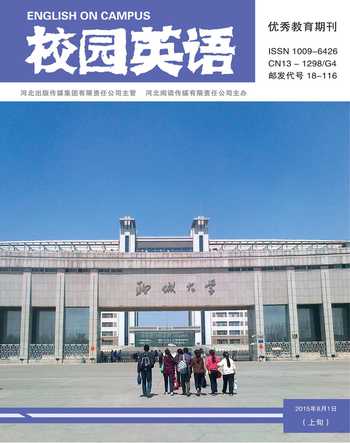OriginandConnotationofHorse
肖燕
【Abstract】The formation and development of the horse-related idioms represent the English and Mongolian perceptions of horses,and reflect their respective society and culture in every aspect.Meanwhile,the different lifestyles,values and customs of the two peoples make the connotation of the horse-related idioms richer and more profound.
【Key words】Horses; Idioms; English; Mongolian; Connotation
1.Introduction
Idioms most often refer to fixed phrases or short sentences extracted after long-term use,most of which have a distinctive image,and are suitable for metaphorical use,therefore,often with strong national flavor and local color.As a specialized form of language,idioms best mirror the national characteristics embodied in a language and are thus always rich in cultural connotation.
There are a number of horse-related idioms both in English and in Mongolian.The richness and felicitousness of these idioms are utterly incomparable.In this paper,the author is going to briefly show the origin and culture connotation of horse-related English and Mongolian idioms.It enables us to have a better understanding of these idioms and to use them correctly.
2.Origin and connotation of Horse-related English and Mongolian Idioms
2.1.Horse-related Idioms Originating from Daily Life and Customs.Daily life and customs,the basic content and form of human existence,are a significant source of idioms.For instance,back in the fourteenth century Wycliffe,an English theologian,depicted what the royal ceremony was like: the big shots rode on large horses,assuming airs of authority haughtiness.Thereafter people use “high horse” to refer to an arrogant air or an angry look.Speaking of good luck and auspiciousness,there is an interesting old Mongolian saying “二歲的馬糞”,denoting good fortune and prosperity.It derives from a Mongolian tradition to hang two pieces of dried horse dung on the inside of the Mongolian yurt,symbolizing exuberance and abundance.
2.2.Horse-related Idioms Influenced by Aesthetic Value Orientation.Though both the English and the Mongolians hold a special affection for horses,they differ in metaphors concerning horses.The meaning of English idioms is usually expressed explicitly with no emotion attached.For example,“dark horse” refers to an unexpected winner or a competitor with unpredictable strength.“Grey mare” is used to describe those wives having power over their husbands,similar to “牝雞司晨” in Chinese.
While the Mongolians hold the view that horses,for all eternity,are graceful and lofty and they are the symbol of spiritual power and prosperity.The force and robustness of horses correspond to the masculinity and valiancy of men,thus metaphor and analogy are frequently employed in idioms,eulogizing steady,industrious,faithful and courageous Mongolian men.For example,“駿馬有美鬃,好漢有美德”,“駿馬蹄子硬,男兒意志堅”,etc.
2.3.Horse-related Idioms Enriched by Literary Works.It is not hard to find that many popular western literary masterpieces have the classic words,phrases and sentences that attract people greatly and affect the formation of English idioms.Shakespeare,among all distinguished men of letters,exerts the most considerable influence on English idioms.“Die in harness” originating form Macbeth by Shakespeare means to die while on duty or at work.“Stalking horse” has its origin in another significant work by Shakespeare,As You Like It,referring to someone or something that hides someone's true purpose.
The Mongolians has a special literary form to eulogize and pay tribute to horses,that is Zhu Zan Ci.In addition,poems about horses in the precious cultural heritage in the Mongolian nationality—heroic epic and in folklore are extremely common.From “我撇開你怎能行動,你離開我如何生存” in the Mongolian Epic Jangar,one can well perceive that the Mongolians have a deep affinity with horses.Beautiful lines like “駿馬奔馳的地方,清泉年年噴涌;駿馬翻身打滾的地方,鮮花朵朵開放” are highly abundant in folklore of the Mongolian nationality.
3.Conclusion
The formation and evolution of horse-related English and Mongolian idioms mirror the development of understanding of horses in the two nationalities.We can easily see that idioms are strongly culturally-loaded and reflect to a certain extent the nationality's way of thinking.Its of vital importance to probe into the meanings and features of horse-related English and Mongolian idioms and correctly comprehend the cultural connotation of these idioms.It undoubtedly assists English learners in their further understanding of the two languages and lends a helping hand to them in cross-cultural communication between the two nationalities.
References:
[1]Claire,K.(2000).Language and Culture.Shanghai:Shanghai Foreign Language Education Press.
[2]Fernando,C.(2000).Idiom and Idiomicity.Shanghai: Shanghai Foreign Language Education Press.
[3]許晉,程語詩(2010).漢蒙涉馬諺語之文化義探析[J].內蒙古大學學報(6).

